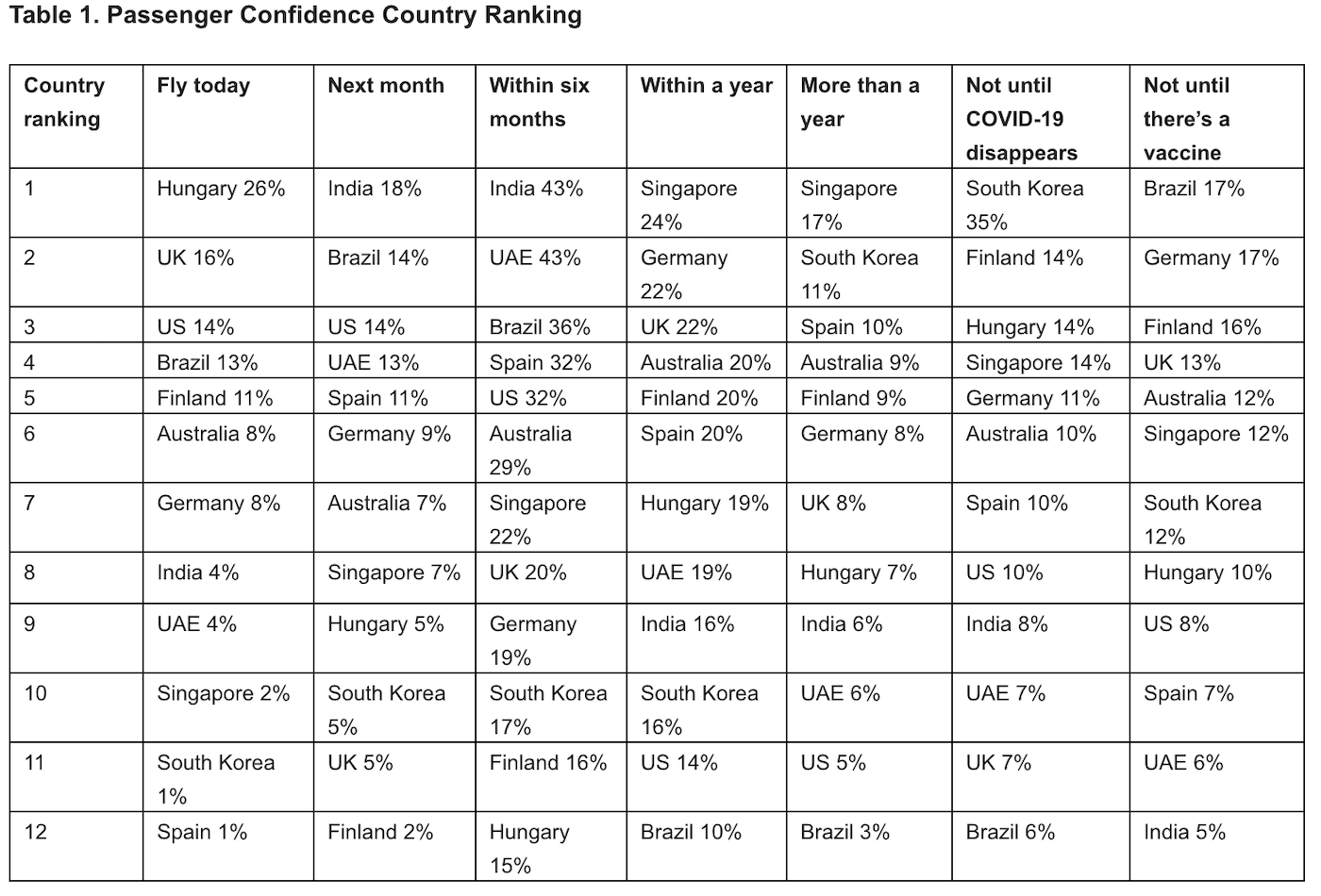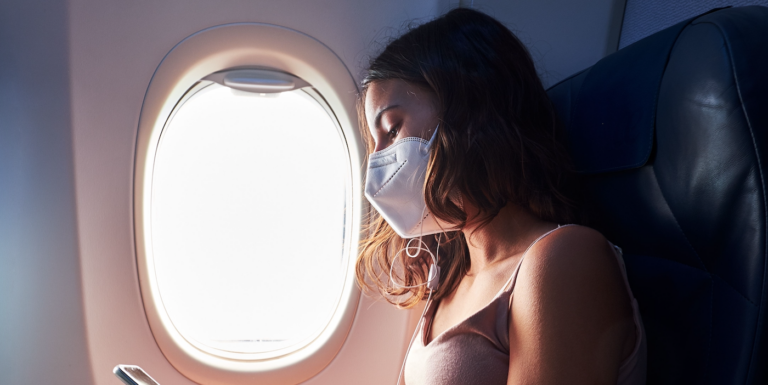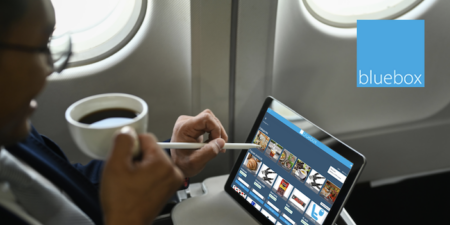Mobile satellite communications company, Inmarsat, claims that its ‘Passenger Confidence Tracker’ is the world’s largest survey of airline passengers conducted since the pandemic began. Findings of the survey of 9,500 respondents from 12 countries across the globe indicate potential changes in flying habits.
While the majority of passengers (60%) feel satisfied with the aviation industry’s response to the challenges of reducing the risk of contracting SARS-CoV-2 during flight, the survey reveals areas of opportunity for airlines to encourage more passengers back to the skies.
Philip Balaam, President of Inmarsat Aviation, said: “With safety and reputation becoming even more important to today’s flyers, there is a clear need for airlines to differentiate themselves in order to encourage passengers back onto their flights. Digitalisation lies at the heart of both; minimising critical touchpoints in the passenger journey to improve confidence, all the while keeping passengers connected and entertained.”
Only 34% of passengers surveyed have taken a commercial flight since the pandemic began, and this appears to have sparked a shift in attitudes to flying. 41% of passengers indicated that they expect to travel less by any means of transport, while 31% said they plan to fly less. This sentiment is higher among Asian passengers, with 58% in India and 55% in South Korea planning to travel less in the future.
Despite this change, the survey showed early signs that travellers are beginning to feel more confident about flying again, with 47% of passengers saying that they expect to feel ready to fly within the next six months. Given that the survey took place before the announcement of a potentially imminent and effective Covid-19 vaccine from Pfizer, these passenger sentiments could trend upwards.
The study revealed significant variance across the world when it comes to passenger confidence about flying in light of the pandemic (see the table below). Hungarian and British fliers are most confident, with 26% and 16% respectively saying they would take a flight today. Asian passengers are less confident, with 35% of South Koreans saying that they do not expect not to fly again until Covid-19 is no longer a threat.
Travel confidence broadly correlates to levels of public concern about Covid-19. For example, South Koreans and Singaporeans are twice as likely to describe their behaviour in relation to the virus as ‘highly cautious’ than Britons. 58% of Singaporeans and 54% of South Koreans said that their behaviour to avoid Covid-19 is highly cautious, versus 29% in the UK.
61% of respondents are currently more fearful of catching the virus abroad than on the plane (55%). In fact, many think they are at a greater health risk in other environments, with 30% of people thinking they are more at risk of catching Covid-19 in a gym, 36% on public transport, and 31% in school. Recent IATA research supports these views, suggesting people are more likely to be struck by lightning than catch Covid-19 on a plane.

While passengers largely feel confident at passport control, security and communicating with cabin crew, they are less comfortable visiting the toilet inflight, and being in close proximity with others. Inmarsat’s survey indicates that solutions that minimise touchpoints and reduce interactions would go furthest in addressing pain points – such as contactless payments inflight (83%) and staggered security queues (84%).
When it comes to ensuring personal safety, only 9% of those surveyed said that 14-day quarantines are the most effective method for personal safety. Instead, the results show that 62% would like to see a consistent set of worldwide safety standards. The most popular choice for ensuring personal safety is wearing a face mask on the aircraft (19%), followed by 17% saying that passengers should only be allowed to fly following a negative test within 48 hours prior to the flight.
44% of passengers say that reputation is now a more significant factor when choosing an airline than it was pre-pandemic. It has therefore never been more vital for airlines to differentiate and gain a competitive edge.
The research highlights that improving the inflight experience is one way to achieve this edge. From extra legroom (43%) to free baggage (39%), value-added services are becoming increasingly important to passengers returning to the skies.
Digital solutions are also fast-becoming essential to an enjoyable inflight experience, with 39% of those surveyed agreeing that onboard wi-fi matters more today than ever before. 55% of Indian and 51% of Brazilian passengers said that inflight wi-fi is more important to the enjoyment of their experience since Covid-19. Destination status alerts, real-time luggage tracking and pre-clearing immigration on the plane – all enabled by cabin connectivity – are among the top new aspects of the journey passengers want to keep post-pandemic. 79% would like to see destination alerts, 78% pre-immigration clearance, and 43% real-time luggage updates.





